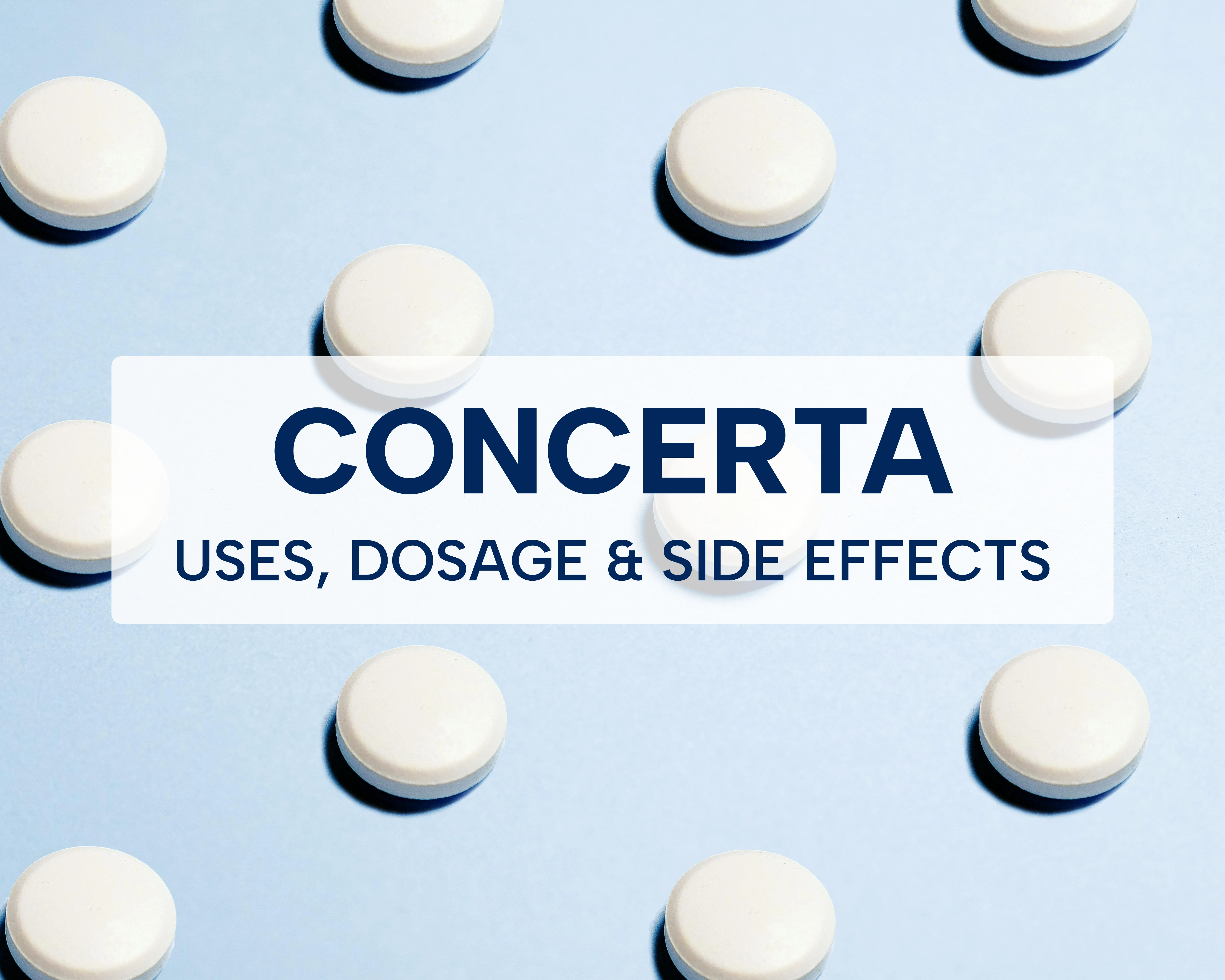The medications listed on this website are provided for informational purposes only.
Their inclusion does not guarantee they will be prescribed to any individual, as treatment decisions are ultimately at the discretion of healthcare providers.
Read moreIn addition to therapy treatment plans, we offer a specialized medication management program. Our comprehensive range of treatment options is thoughtfully designed to provide a holistic solution for managing ADHD effectively and empowering individuals to thrive.
Begin Your Personalized ADHD Care Today!

Get your ADHD Prescription Online Today
You have a major project coming up, so you sit down to work, but instead pick up your phone and scroll. Or maybe you open your emails to do mindless admin work instead. Either way, you’re avoiding the task, and deep down, you know you’ll end up doing everything last-minute.
If that’s a common experience for you, you might know what it’s like to have ADHD. If there’s not an urgent deadline, there’s no motivation to get started. Meanwhile, things that seem easy to others feel incredibly overwhelming for you (like running errands or going to the doctor regularly).
For people struggling to organize their tasks and focus on what’s needed, medication like Concerta is becoming more and more common. Along with talk therapy, ADHD medication works to help you stay on task, manage distractions, and follow through on your plans — so you’re not constantly battling that mental “to-do” chaos.
Read on to learn how Concerta works, who it’s for, common side effects, and how ADHD Advisor can help you access care and support.
What is Concerta?
Concerta is the brand name for methylphenidate, an extended-release stimulant. It’s designed to help quiet the mental traffic, creating a smoother ride for you to get where you need to go.
It’s FDA-approved for ADHD in children 6+, teens, and adults up to 65. However, it’s a Schedule II controlled substance, meaning it comes with risks. One of the biggest concerns is that it can be addictive, with a high chance of substance abuse. That’s why an ADHD prescription has to come from careful thought from a licensed clinician.
ADHD Advisor offers therapy, stimulant, and non-stimulant medication nationwide for adults 18+. Stimulants like Concerta, though, have to follow strict state rules — so where you live can change your options for getting a prescription online.
How Concerta Works
Concerta helps ADHD symptoms by increasing two neurotransmitters: dopamine and norepinephrine.
- Dopamine: Helps control your motivation and reward for behaviors. For example, “Do I want to start and stick with this task?”
- When imbalanced, your ability to start a task or stay focused (particularly on something you’re not really interested in) gets harder.
- Norepinephrine: Works to make you alert, focused, and able to respond to what’s important. For example, “Am I paying attention to the right thing right now?”
- When levels are low or not signaling properly, you feel scattered and can’t switch between tasks easily or stay on top of everything.
In general, these chemicals tend to work differently in people with ADHD. It’s common to have dysregulated levels or transmission (like how well the chemicals can “communicate” with your brain).
It’s a bit like sending texts between brain cells. With ADHD, the messages can get there late, get lost, or not even be strong enough to send through at all. Medications like Concerta can help strengthen the signals so that your brain gets the message it needs, and reacts accordingly.
What’s the OROS system?
Concerta uses the OROS (osmotic-controlled release) system to deliver the neurochemicals to your brain. The pill has a hard outer shell and a core that absorbs water once it reaches your stomach. Once water enters the core, pressure builds, steadily pushing the medication out.
It works slowly, over about 12 hours, making it a gradual-release system. You wouldn’t have to take multiple doses for a long workday, like with immediate-release (IR) medications (such as Adderall, Ritalin, or ProCentra).
Who Can Take Concerta
Concerta is FDA-approved for children 6+ up to adults 65 years old. However, it’s not for everyone with ADHD. If you have any health condition, let your clinician know. It’s not recommended for anyone with:
- Thyroid issues
- Heart problems
- Recent MAO inhibitor (type of antidepressant) use
- Severe anxiety, tics, or Tourette’s
- Gastrointestinal obstruction
- Alcohol or drug problems
All stimulants now have a warning label for children under six, since the medication can cause weight loss and stunt growth. Here at ADHD Advisor, we only work with adults 18+, and stimulants are prescribed at the discretion of a licensed clinician’s opinion.
Dosages and Administration
When it comes to dosing, strictly follow your clinician’s orders and keep them updated with any side effects. In general, the recommended dosages are:
- Children 6-12: 18-54 mg/day
- Adolescents 13-17: 18-72 mg/day
- Adults 18-65: 18-72 mg/day
Take the tablet once daily and swallow it whole for the OROS system to work properly.
Side Effects and Risks
Like any powerful medication, Concerta has potential side effects and risks, so it’s important to know what to watch for. This includes serious risks such as:
- Boxed warning of addiction, abuse, misuse, overdose, and even death.
- Stroke, high blood pressure, and sudden death in people with heart conditions.
- Irregular heartbeats, chest pain, shortness of breath, exhaustion, and fainting.
- Skin issues include itching, rashes, hives, blistering or peeling skin, swelling of the eyes, face, lips, mouth, tongue, or throat.
- New or worsening anxiety, aggression, mania, or psychosis.
- Difficulty breathing or swallowing, or hoarseness.
- Seizures, vision changes, motor or verbal tics.
Some of the more common and immediately noticeable everyday symptoms include:
- Nausea
- Dry mouth
- Headaches
- Upset stomach
- Trouble sleeping
- Decreased appetite
- Irritability and anxiety
If you notice serious or unusual symptoms, don’t ignore them — report them to your clinician and the FDA MedWatch.
Concerta vs. Other ADHD Medications
With all the ADHD medications available, it’s easy to feel overwhelmed about which might be best for you. Concerta has some unique features that set it apart when you compare it to others. For example:
- Ritalin tends to wear off in a few hours, while Concerta can go for up to 12 hours.
- Adderall XR and Vyvanse are amphetamine-based, while Concerta is methylphenidate-based. Some people respond better to one over the other, but it depends on the person.
- Non-stimulants (like atomoxetine or viloxazine) have a lower risk of abuse and work more gradually over a few weeks.
Besides side effects and duration, there’s insurance coverage and cost to consider. Some ADHD medications are more available and cost-effective than others. Try checking with your local pharmacy and insurance company to get an idea of what’s available for you.
However, in the end, it’s up to your clinician to decide which ADHD medication is best for you. They have to take into account your health status, family history, mental condition, and much more.
If you’re concerned about any side effects in particular or notice you can get easily addicted to things (including socials), be sure to mention it to your clinician.
ADHD Care with ADHD Advisor: Therapy, Non-Stimulants, and Stimulant Availability
We know more overwhelm is the last thing you want, so we make ADHD care as simple as possible at ADHD Advisor. We set you up on a simple process and offer therapy and non-stimulant prescriptions nationwide.
You can access telehealth sessions, get guidance on behavioral strategies, and, if appropriate, start medications like atomoxetine or viloxazine. When it comes to stimulants, we can only prescribe them online in select states, and as always, under clinician supervision.
Step-by-Step Care Process
Here’s how to get started with your treatment:
- Fill in the intake and ADHD history form.
- Schedule and attend your online evaluation with our licensed clinicians to get tested for ADHD or confirm your diagnosis (often possible same-day).
- Get your personalized treatment plan (including therapy, non-stimulants, or stimulants if appropriate).
- If eligible and available in your state, ADHD Advisor can offer stimulant prescriptions.
- Schedule regular follow-ups and get therapy and dose adjustments as needed.
State Availability Examples
Stimulants are only available in certain states with ADHD Advisor, including:
- Texas: Get your online Adderall prescriptions in Texas.
- Florida: Find your online ADHD doctor in Florida.
- Washington: Access your online ADHD prescription in Washington.
- Pennsylvania: Schedule a visit with an online ADHD provider in Pennsylvania.
- New Jersey: Find a licensed ADHD doctor online in New Jersey.
You can always check your state-specific page on ADHD Advisor for the latest on stimulant availability, because regulations can vary.
Access, Cost, and Insurance
Which ADHD medication you use often depends on what’s available (and covered by your insurance). With ADHD Advisor, we don’t bill your insurance directly, but instead offer a superbill that you can submit for possible reimbursement.
In general, brand names tend to be more expensive, while the generic version (methylphenidate ER) can be more affordable. Other stimulants might be prescribed more often than Concerta, meaning that it can run low in some pharmacies.
Talk to your clinician about your needs, and see what they think might be your best option.
2025 FDA Label Update
This year, the FDA required stimulants to come with a label that warns of the risks associated with children under 6. This includes:
- Weight and growth problems: Stimulants can decrease appetite, making children lose out on the nutrition needed to develop and grow.
ADHD Advisor works specifically with adults 18+ to 65 and uses licensed clinicians to ensure each person gets the care they need. You can get started with a same-day ADHD diagnosis, along with your treatment plan, potentially including medication.
FAQs
Is Concerta addictive?
- Yes, it’s a Schedule II Controlled substance with a high risk of addiction and misuse.
Can I get Concerta through ADHD Advisor?
- Yes, if you’re an adult 18+, in a select state, and it’s deemed clinically appropriate.
How long does Concerta last?
- About 12 hours, but it varies per person.
What happens if I miss a dose?
- Don’t double up: If you miss a dose, skip it.
What are the common side effects?
- Insomnia, headaches, stomach pain, nausea, irritability, anxiety, and appetite loss.










